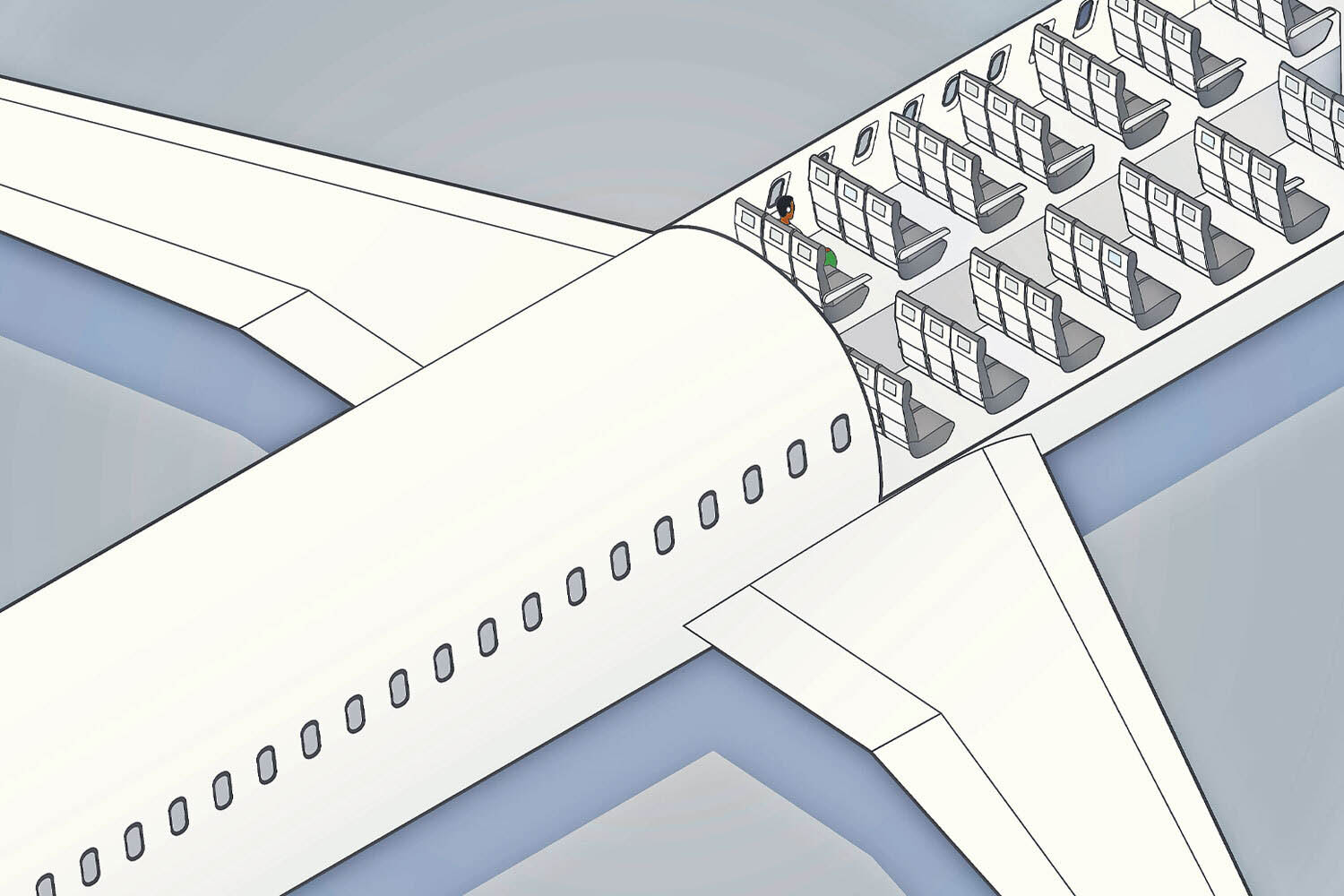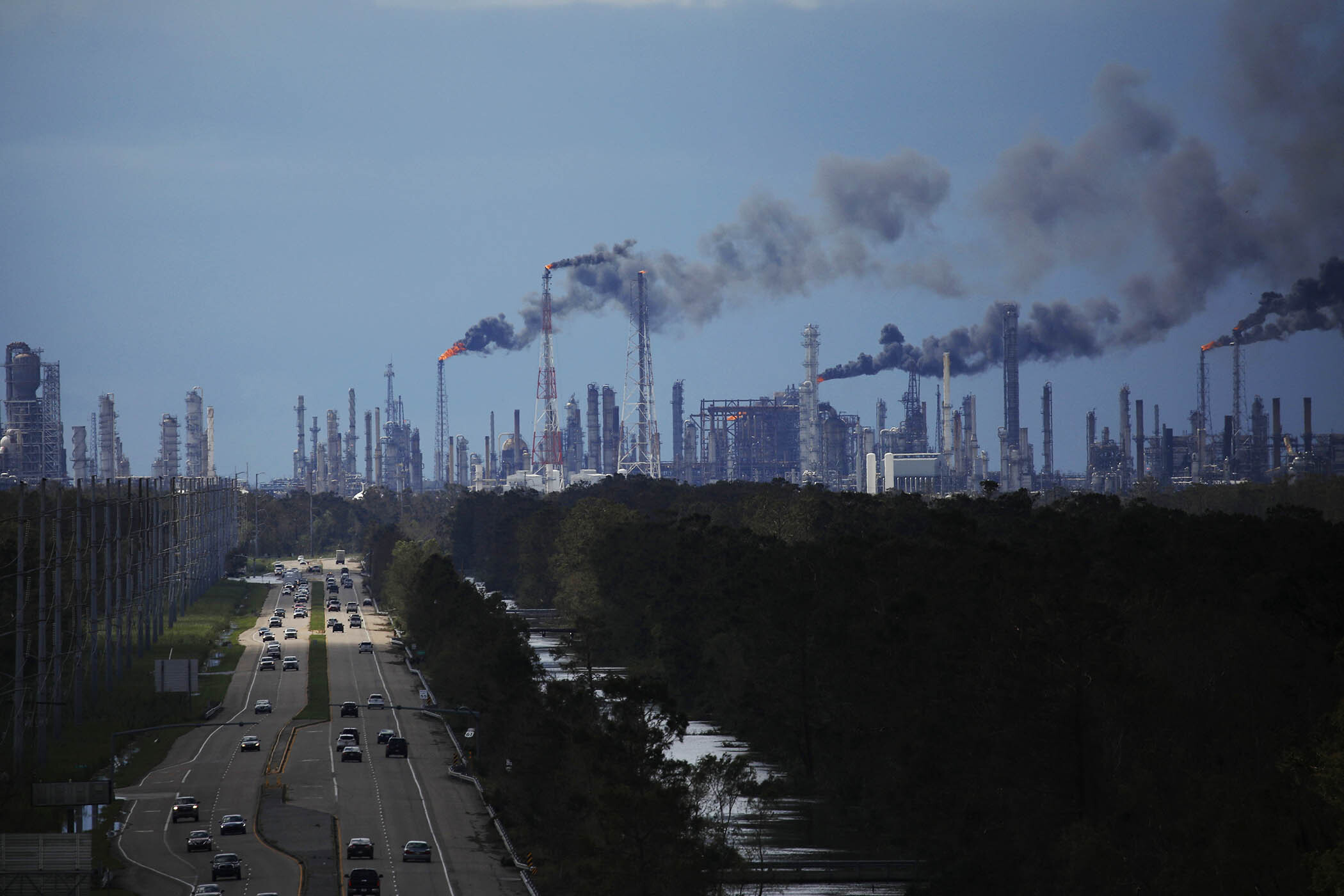On 12 May 2010, Afriqiyah Airways Flight 771 crashed on the approach to Tripoli International airport in Libya, killing 103 people. The only survivor was a nine-year-old Dutch boy, Ruben van Assouw, who was found, still strapped into his seat, in an area of desert strewn with debris. Among the dead were his parents and brother.
Ruben became the focus of frenzied media attention. A photo of him asleep in a hospital bed, tiny and covered in bruises, circulated the globe. The Dutch newspaper De Telegraaf reached him by telephone right after he had come out of surgery to mend his broken legs, and he told the journalist that he didn’t know where he was or what had happened and just wanted to go home.
His aunt and guardian, Ingrid van Assouw, told a Dutch chatshow in 2020 that years later he still felt angry and hurt that he was tricked into speaking to the press before he knew his family had died. Ruben never spoke publicly again.
I was living in Tripoli when the plane crashed and I remember the terrible unease that hung over the city that morning, the scramble to find out who was on board. Many of the passengers were Dutch, and my friend who was interning at the Dutch embassy was sent to sit at Ruben’s bedside.
Ruben’s family were from Tilburg, a town in the south of the Netherlands and, by coincidence, where my maternal grandparents lived. Ruben’s grandfather, Toine van de Sande, sounded and even looked a bit like mine, but seems to have had more patience. Is it a “consolation” that Ruben survived, an interviewer once asked him, and the old man, who had lost a daughter, son-in-law and grandson in the crash, gently explained that losing a child is one of the worst things that can happen to a person, and consolation didn’t feel like the right word.
I tell myself that these tenuous personal connections are the reason I kept following Ruben’s story, hoping he’d one day share it in full, but I suspect I’m curious for the same reasons many other people are.
Like the interviewer who wanted to hear that Ruben’s survival was consoling, I was probably hungry for answers that Ruben would be unable to give. What exactly does it feel like to be in a plane crash? How do you rebuild a life in the aftermath of such a tragedy? If something similar happened to me, would I be able to do the same?

Vishwashkumar Ramesh, right, walks away from the Air India crash in Ahmedabad
On 12 June, a 38-year-old British Indian named Vishwashkumar Ramesh survived an Air India crash in Ahmedabad that killed all 241 other passengers and crew on board, as well as dozens more who were in the residential area where the plane crashed. The death toll is at least 270. Astonishing footage later emerged online that showed how Ramesh limped away from the exploding plane, gripping his mobile phone as fierce flames and black smoke billowed behind him, before being led to an ambulance.
Ramesh, described by the BBC as a businessman and married father of one, had been visiting India on holiday with his brother, Ajay. He was sitting in 11A, near an emergency exit. Ajay was a few seats along, in 11J. He didn’t make it. His family said Ramesh phoned them from the crash site, frantic about wanting to find Ajay.
Ramesh found himself thrust straight into the international spotlight and called on to answer impossible questions. He gave his first interviews from his hospital bed, looking bruised and dazed, and tried to explain how, while he saw people dying all around him, he managed to unbuckle his seatbelt and walk out through a broken emergency exit door.
Newsletters
Choose the newsletters you want to receive
View more
For information about how The Observer protects your data, read our Privacy Policy
He had cuts to his face, a burn on one hand and some internal bleeding, but hospital doctors quickly declared that his injuries weren’t critical. “How do you feel that you have survived?” he was asked by a presenter for India’s state broadcaster, Doordarshan. “I can’t explain – it’s a miracle and everything,” he replied.
Soon, Ramesh’s image was splashed over newspaper front pages and his first interviews were translated and broadcast around the world. India’s interior minister and its prime minister, Narendra Modi, both visited Ramesh in hospital. A few days after the crash, when Ramesh carried his brother’s coffin through the funeral procession and wept, his grief was filmed and posted online for all to see.
Most people want to grieve in private, so why did we find it so hard to look away? What drives our hunger for unlikely survival stories and our intense curiosity about plane crashes, the desire to learn all we can about the miracle – and everything else?
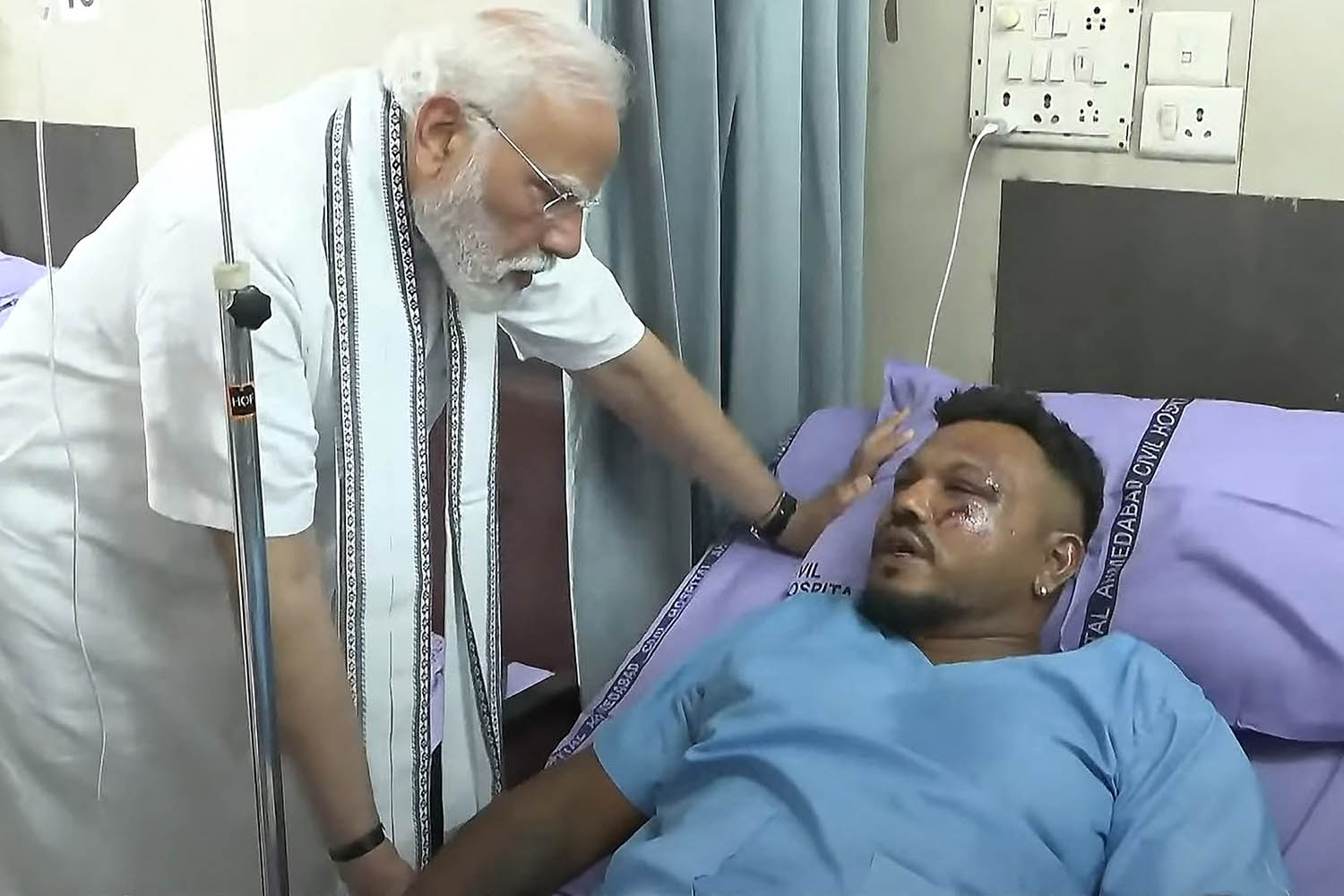
India’s prime minister Narendra Modi visits Ramesh in hospital
On a very basic level, we read about plane crashes because we’re hard-wired to pay attention to things that are negative and that are unusual. “We know from years of social science, neuroscience and evolutionary science that humans, on balance, are more attentive to negative information than to positive information,” said Stuart Soroka, a professor of political science at the University of California, Los Angeles. “That’s driven by evolution and the adaptive advantages of paying attention to information that might lead to [preventing] death.”
In other words, our forebears would have suffered much more for failing to notice threats – a stalking lion, say – than they would benefit from spotting good stuff; a juicy berry bush, perhaps. We’re also primed to pay attention to outliers, events that are novel or that defy our predictions, Soroka explained. These are, after all, the pieces of information that may require us to change our behaviour or our expectations. The Air India story has us hooked not only because it is tragic, but also because it is shocking.
Some people might be content to skim the headlines, but others – including, presumably, a fair number of people reading this piece – want to go deep. They’ll read every news article, click on the obscure YouTube videos, watch the inevitable Netflix documentary. Humans are not the only animal to exhibit morbid curiosity. Elephants that come across the rotting corpses of other, unknown elephants have been observed picking over the bones, which might seem like unexpected behaviour from animals also known to feel empathy, to mourn their dead and carry out grief rituals.
Some scientists believe the elephants might be trying to investigate the cause of death, which adds weight to the theory that morbid curiosity grew out of a need to better understand potential threats.
Another theory is to do with human empathy: that we read of violent accidents and gruesome illnesses because we have a deep, ingrained drive to understand another’s pain. Or maybe, as the writer Eric G Wilson suggests in his book Everyone Loves a Good Train Wreck: Why We Can’t Look Away, we’re drawn to the macabre because it reminds us that life is fragile and fleeting, and thinking about death makes us feel more alive.
Intriguingly, a recent study found that people with higher levels of morbid curiosity are also more likely to believe in conspiracy theories. “Morbid curiosity is a greater interest in learning about potential threats, and, in general, conspiracy theories present information about potential threats,” said Joe Stubbersfield, a psychologist at Winchester University and the study’s lead author.
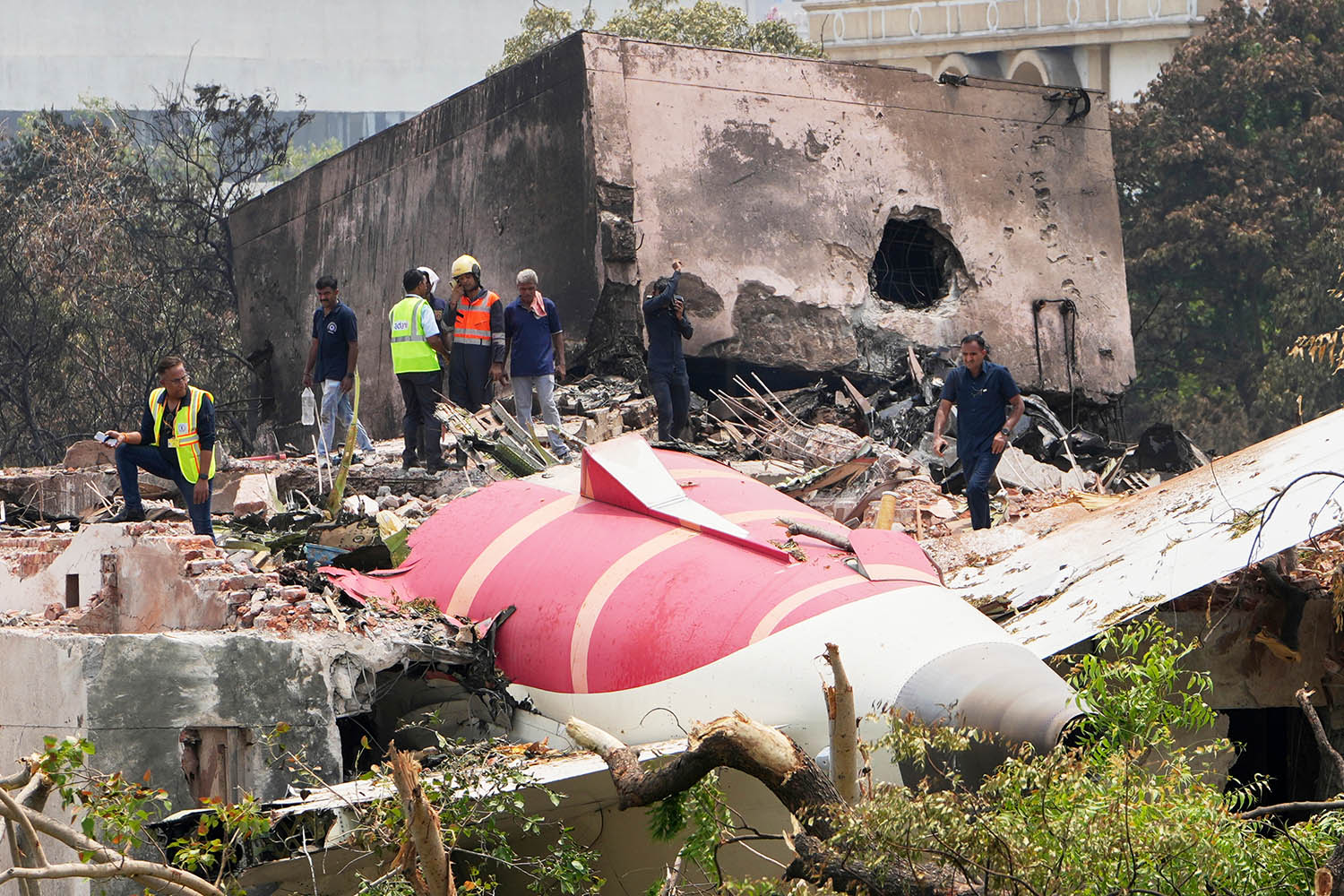
The Air India crash site in Ahmedabad
It’s not simply that the morbidly curious are more likely to encounter conspiracies, given they spend more time reading about crime and disasters. Stubbersfield’s research has also found that conspiracy theorists’ explanations for events tend to be more threatening than mainstream explanations, which makes them more interesting for the morbidly curious. Presented with the option of reading about how the white lines that trail behind planes are simply water vapour, or how they are hazardous chemtrails, the more morbidly curious person opts for the latter.
This is unfortunate, because air disasters take months or years to fully investigate or understand – and sometimes the real answers will never be known. That creates an information vacuum that conspiracy theorists are eager to fill. Already, unsubstantiated online rumours have emerged that Ramesh was never on the plane at all, that he was somehow responsible for the crash and that he had been arrested. Thanks to our innate curiosity, these online conspiracy theorists know they can count on a ready – and credulous – audience.
Unlikely but very deadly events such as plane crashes are sometimes known as “dread risks”. They capture our imagination and inspire more fear than other more common lethal hazards, such as car accidents, and so we tend to overestimate their likelihood. According to a 2024 study by MIT, between 2018 and 2022, there was one fatality for every 13.7 million passenger boardings. And yet a 2024 YouGov poll found that 5% of people in Britain are “very scared” and 14% are “fairly scared” of flying.
There may be evolutionary reasons for this tendency: when humans moved in small hunter-gathering groups, losing a critical mass of people could imperil the entire community. But it makes us act in irrational ways. In the aftermath of 9/11, it’s estimated that there were almost 1,600 more traffic fatalities in the US because people chose to drive rather than fly.
If humans were purely rational about risk, we’d worry more about how to reduce hazards on the drive to the airport than while on board a flight. Instead, since the Air India crash there has been a sharp rise in Google searches for the “safest seat on the plane” (spoiler alert: there isn’t one) and reportedly there has been unprecedented demand for seat 11A. Several friends and acquaintances have told me they feel nervous about flying this summer.
Fear is rarely rational or proportionate. Occasionally we fear genuinely dangerous things (guns, say), sometimes we have entirely irrational fears (balloons or dead birds) and other times our fears may be part of our evolutionary inheritance.
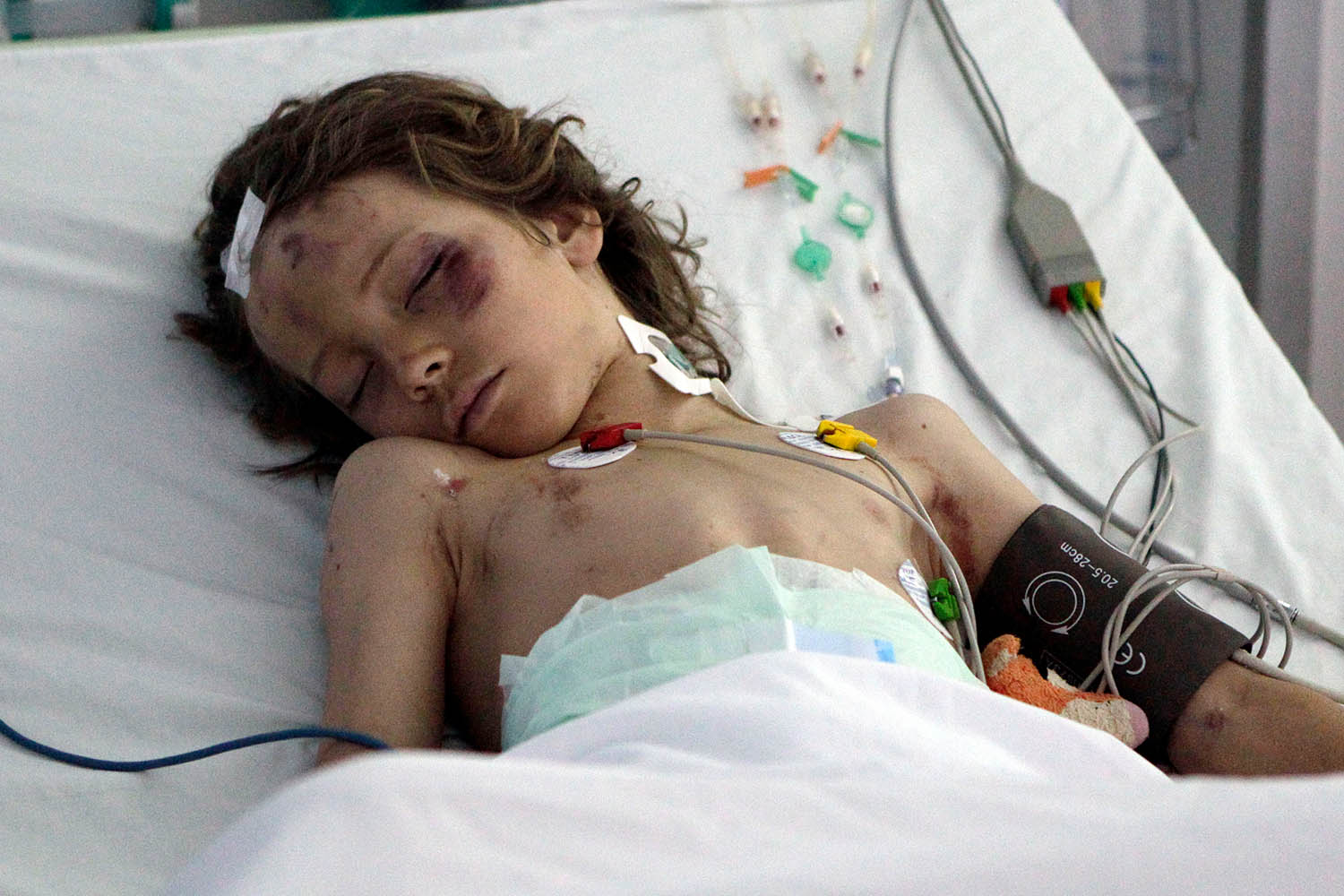
Ruben van Assouw in hospital after surviving a plane crash in Libya that killed everyone else on board
“Things like snakes or small spaces or darkness, there’s an argument that even if you know something is safe now – like a non-venomous snake – there’s a deep coding in us from times when it would have been a matter of survival,” said Eva Holland, the author of Nerve: Adventures in the Science of Fear. Aeroplanes “seem to fall right in the middle”.
On the one hand, a fear of heights is a common inherited fear. On the other, commercial air travel is very safe. Your rational brain can tell you not to be worried; your primitive, animal brain cannot accept that hurtling through the sky in a metal tube is a sensible thing to do. You can remind yourself mid-flight that turbulence is fine and normal, and then you can find yourself thinking about just how terrifying it would be if this thing goes down.
When the financier and environmentalist Ben Goldsmith was 19, he learned exactly how terrifying it is when your plane falls from the sky. He was travelling with his mother, sister and two young nephews on a British Airways flight bound for Nairobi that was hijacked. The hijacker put the plane into a nosedive, and it spiralled down 12,000ft in 25 seconds before the captain managed to regain control with seconds to spare.
“You had people screaming and praying and masks falling out, falling suitcases and trolleys, people with broken legs and broken arms,” said Goldsmith. “I think I said to my mother: ‘We’re going to die now.’ And I remember this awful groan she made.”
The strange thing was, he somehow believed that he might personally survive the crash. “I remember battling against the forces of gravity to get my shoes from under the seat in front and on to my feet,” he said. It had felt important that he should be wearing shoes so that he could walk away.
For more than a decade afterwards, Goldsmith had an intense fear of flying and he described himself as gripped by a kind of mania. “I felt a sense of urgency that I could die at any time and therefore I must marry my girlfriend, I must have children, I must start my business, I must go do that bucket list thing,” he said, “I don’t think I used terms like destiny or fate or God’s will, or I wouldn’t have ascribed any of those meanings to it. It was almost more of a physical response of: ‘Your life is very short. You’re lucky to have any life left.’”
People look at you and think you’ve got a destiny, there’s something God saved you for
People look at you and think you’ve got a destiny, there’s something God saved you for
When, in 2019, his daughter Iris died aged 15 in a quad bike accident, he was as devastated and shocked as any other parent would be but perhaps less surprised, he said. He’d long been a “catastrophist” and “I sort of thought: ‘These things happen all the time,’” he said. He learned through his intense grief to surrender to things beyond his control and he doesn’t fear flying any longer. He gets on a plane and simply thinks: “If I die, I die.”
Not everyone is able to embrace fatalism; some of us haven’t yet learned to make peace with the inevitable. And maybe our interest in survival stories is partly driven by the blind hope that we’ll be the ones to cheat fate. We’ll be the ones who put on our shoes mid-descent, and we’ll trek for days through the jungle, resort to cannibalism or hack off our own arm with a penknife if we need to. We’ll book ourselves on seat 11A.
The 2013 CNN documentary Sole Survivor interviewed four people who were the only survivors of commercial plane crashes. They all struggled with intense survivor’s guilt, and often grappled with how they should understand the miracle of their survival: was it pure chance, or was there some deeper reason that they lived when others didn’t.
“It was random. I just happened to be at the right place at the right time,” said Cecelia Cichan to the documentary makers. Cichan was four years old when she survived a 1987 plane crash in Detroit that killed 154 people, including her parents and brother.
George Lamson Jr, who was 17 when he survived a 1985 plane crash in Reno that killed 70 others, including his father, was more conflicted. “Being placed as a miracle boy, or someone that is a recipient of a miracle, people look at you and think you’ve got a destiny, there’s something God saved you for … and that’s unrealistic,” he said.
Like Goldsmith, Lamson lived fast and recklessly in the years after the crash, and he burned through the compensation money he received, but his recklessness was for different reasons. “I liked the thrill of being on the edge of death. I felt maybe I was being protected, and I wanted to see if that was true,” he said.
Lamson remembers a strange detail from boarding the ill-fated flight. The seats were not assigned, and yet after he and his father were seated, two men approached and asked them to leave. His father was not a man who would simply get up because some stranger told him he had to, but that night he decided he couldn’t be bothered to argue. They moved seats – and Lamson Jr lived.
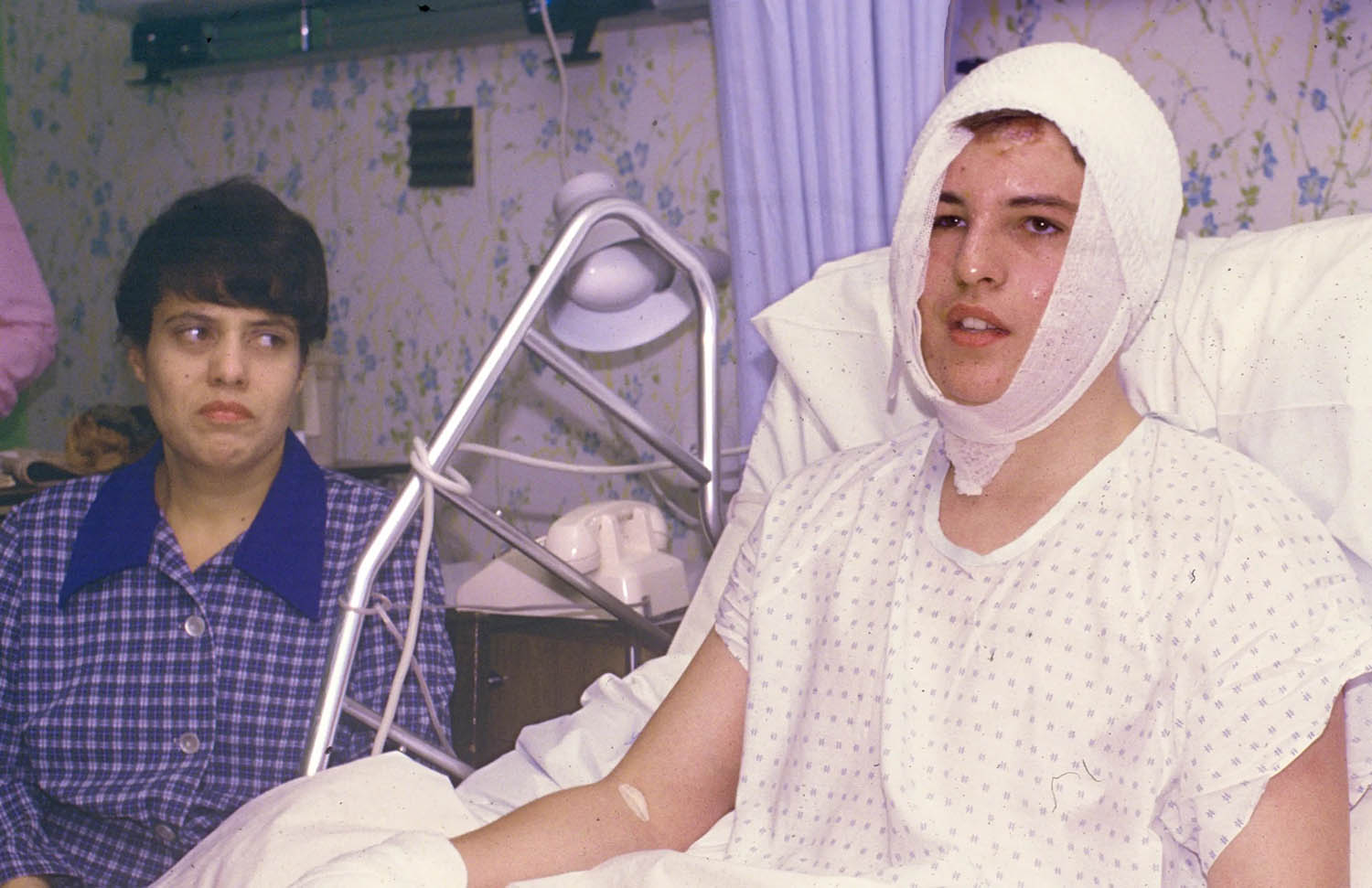
‘A bright light at a very bad time’: George Lamson Jr survived a 1985 plane crash in Reno that killed 70 others
In the aftermath of disasters, we often hear stories of how people’s lives were spared or lost because of seemingly trivial decisions. An oral history of 9/11 found that some people survived because of a typo on their flight itinerary, or because they stopped to pick up some new spectacles on their way to work that day or went back to change a shirt.
To avoid completely losing our minds, we must assume that our lives will unfold in more or less predictable ways and that our mundane, everyday decisions won’t matter. You cross the road, and you get to the other side, the plane won’t crash, the bridge won’t collapse, the headache really is just a headache. And then life throws a curve ball.
A plane crash is not a truly random event: there is always a cause, or perhaps complex, interacting causes. But to find yourself a passenger on a doomed plane feels random, a case of pure bad luck, and we find it very hard to accept the role that chance plays in our lives. The apparent randomness of the universe disrupts our efforts to make meaning; it upends our personal narratives. It feels entirely unreasonable that sometimes everything hinges on whether you sat in seat 11A or 11B, but the truth is that sometimes it does.
For years, Lamson had avoided meeting the families of those who died in the Reno plane crash because of his guilt. He worried they would conclude that their loved ones would have made much more of their lives than he had managed. Did they find it painful, he asked them, when they watched him in press conferences soon after the crash, virtually uninjured and grinning? No, the relatives assured him, to his deep relief. They were just happy for him. “You were a bright light at a very bad time,” said one.
You imagine that when nine-year-old Ruben van Assouw’s family decided to shield him from public view, they wanted to shelter him from the pressure that comes from being a modern-day miracle, a symbol, a person forever defined by the luckiest and worst thing that has happened to them. They wanted him to experience a quiet, ordinary life – the kind of good fortune that doesn’t inspire headlines or viral videos and that we often overlook.
And so maybe we don’t need to know any more about Vishwashkumar Ramesh than we do already. His story is a bright light at a bad time; a reminder that the same unlucky twists of fate that cause unforeseeable tragedies and freak accidents also produce miracles. Stories such as Ramesh’s make the apparent randomness of life just a little more palatable. After all, sometimes – roughly one in 13.7 million times – the plane you are sitting in crashes. And sometimes, even more rarely, you get to walk away.
Photographs by Getty, AP Photo/Ajit Solanki, Andrew Medichini/AP, AFP
